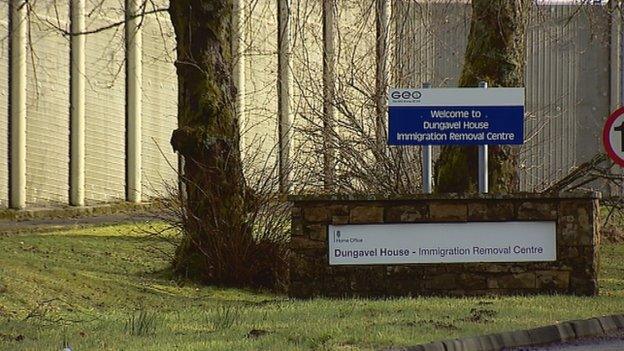What happens to asylum seekers when they reach the UK?
- Published
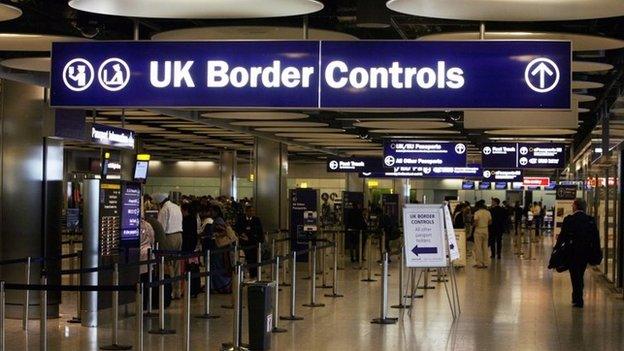
The process for claiming asylum in the UK can be a long and complex one. What happens when asylum seekers arrive in the country?
Thousands of migrants, many of whom want to seek asylum, have attempted to cross the Channel from France to the UK.

What is an asylum seeker?
Someone who is unable to seek protection in their home country, and who is claiming to be in fear of persecution on the grounds of race, religion, nationality, membership of a particular social group or political opinion.
Successful applicants will gain refugee status and will be allowed to stay in the UK for five years.
If the situation in their home country has not improved after those five years, they can apply to stay permanently.

How do they claim asylum?
Asylum seekers are told to present themselves to authorities "when you arrive in the UK, external or as soon as you think it would be unsafe for you to return to your own country".
If caught by police illegally in the UK, they are at first arrested on immigration offences. Immigration officers will submit an application on behalf of those seeking asylum.
Asylum seekers will be asked to explain how they were persecuted in their home country and why they are afraid to go back, and to provide any evidence supporting their claims.

Where do asylum seekers come from?

In 2014-15, the largest number of claims came from Eritrea (3,552), Pakistan (2,421) and Syria (2,222).
Though the Home Office accepts applications from all countries, those from nations judged to be "safe" are less likely to be approved.

Where do they stay?
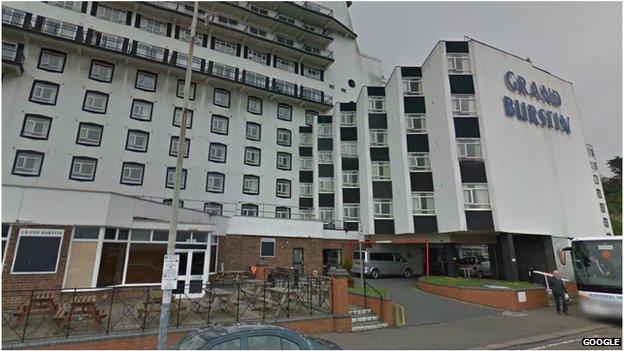
Asylum seekers have previously stayed at the Grand Burstin hotel in Folkestone, Kent
Those thought to have legitimate claims for asylum are put into accommodation provided by the Home Office while their claims are considered.
This can be either private housing contracted by the government or temporary accommodation like hotels.
Under the Detained Fast Track system, applicants stay in detention centres, also called immigration removals centres, which are run by HM Prison Service.
A person can also be detained at any point in the asylum process if officials believes that their case is straightforward.
Refugee advocacy groups argue that detention can damage the mental health of those who may have suffered persecution, rape or torture in their home countries.

Do they get financial help?
People awaiting an asylum decision are given an allowance to live on.
As well as housing assistance:
A single person gets £36.95 per week
A single parent with one child gets £73.90
A single parent with two children gets £110.85
A couple with two children gets £147.80
The amounts were recently reduced by the government.
Asylum seekers are not allowed to work in the UK. But if their asylum claim takes more than a year to be processed, they can apply for the right to work.

How long do they wait?
The government aims to process simple claims within six months, but there are cases that have lasted years, with legal challenges further delaying decisions.
The Detained Fast Track system played a key role in immigration removals and meant that some applications were processed in 22 days.
But the High Court deemed the system unlawful in June, saying that its speed put applicants at a "serious procedural disadvantage".

How many are accepted?
There were 25,020 asylum applications in the UK in the year up to March, external, a 5% increase on the previous year.
Asylum or an alternative form of protection was granted in 40% of cases - up from 36% the year before.

What if their application is refused?
The government begins the process of removing the asylum seeker from the UK. Some are offered money to leave voluntarily.
Depending on the nature of their claim, they may be put in a detention centre or temporary housing.
Removal can be complicated by legal challenges, as many will be vulnerable and may have suffered abuse or torture.
It can also be a lengthy process to get new identification documents issued by countries of origin.

Why don't Calais migrants claim asylum in France?
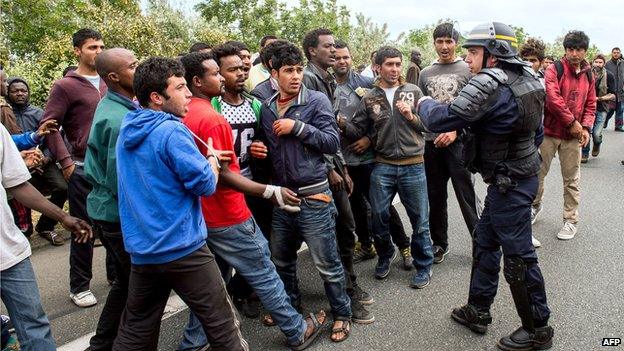
UK politicians have said the migrants in Calais should claim asylum in France if they need protection.
But many migrants say their life in France is "no good", and they hope for better opportunities in the UK.
Under EU rules, asylum seekers should claim asylum in the first safe country they come to.
Electronic fingerprinting means that many who make it further into Europe will end up being sent back to Italy or Greece, where many first entered the EU.
- Published29 July 2015
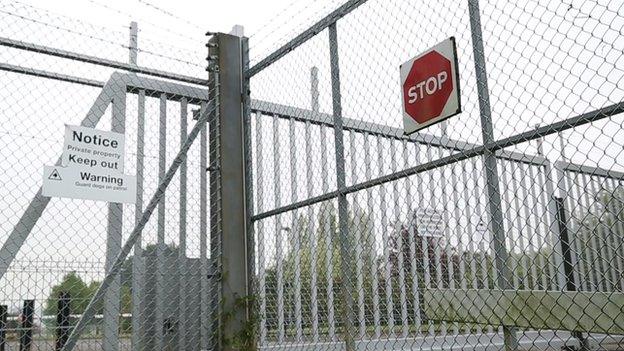
- Published16 July 2015
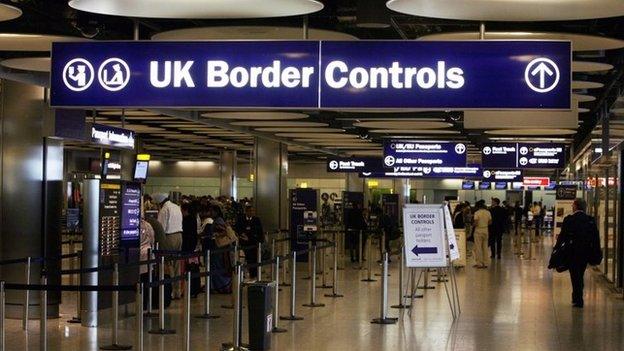
- Published4 March 2015
